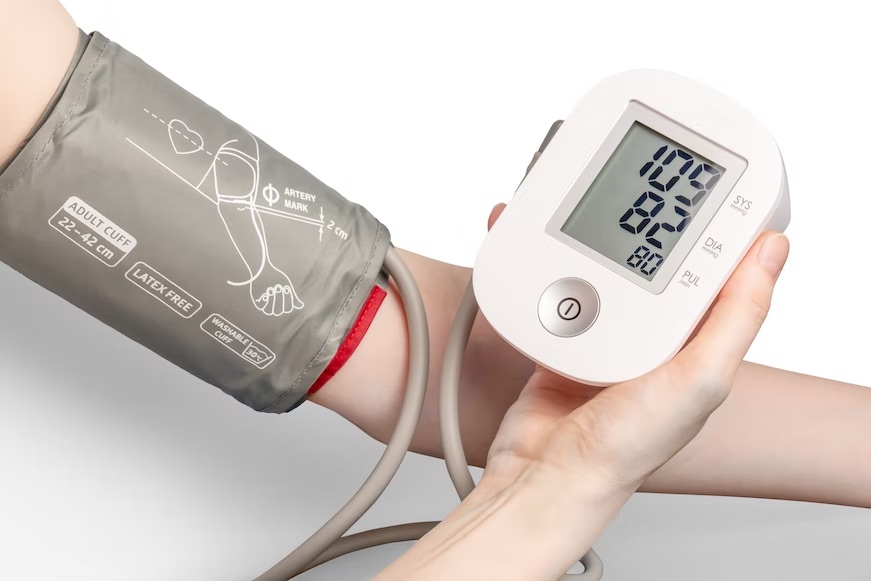Low blood pressure (or hypotension) is a condition in which blood flow to the organs is insufficient. Side effects of low blood pressure typically include dizziness, head-rush, and in more extreme cases, fainting.
Symptoms may include:
- Feeling sick
- Blurred vision
- Confusion
- General weakness
- Paleness
- Sadness or feelings of depression
The most severe cases of low blood pressure lead to strokes, heart attacks and kidney failure due to a lack of blood flow to the vital organs. So what exactly causes low blood pressure in humans?
Your blood pressure is the force by which blood is circulated through the body. If this force is too weak, blood is not circulated properly. As our organs and muscles need blood and the oxygen it delivers to function, an adequate blood pressure is needed for the body to work.
Reasons for Low Blood Pressure Include:
- Relaxation/stress levels
- Age
- If you are on medication
- Physical activity
- Body mass or weight
- Time of day
- Heart disease
- Genetics
- Hormones
- Lack of vitamins B-12
- Pregnancy
There are a plethora of causes of low blood pressure, some having more severe effects on the body than others. Generally more minor causes of low blood pressure will be variables such as the time of day and one’s stress levels. After you have been lying down for an extended period of time (be it for a night’s sleep, perhaps), it is fairly common to become lightheaded and dizzy if you get up suddenly. This is because blood pressure is lower overnight, in part due to a lack of eating. Getting up first thing is usually when you feel that your blood pressure is lower than usual. Midday is the highest point of your blood pressure levels.
Stress tends to heighten our blood pressure, such that it is lower when we are relaxed. This is not to say that it is better for us to be stressed; it simply goes to show that our emotional moods can have a bearing on our physicality.
Exercise will raise your blood pressure upon physical exertion (especially when doing cardiovascular activity), but it will lower your blood pressure when resting, and generally lower it long-term. Athletes tend to have far lower blood pressures and resting heartbeats to people who do little to moderate exercise.
Blood pressure generally rises with age, so it is more common to find low blood pressure in younger people, and high blood pressure amongst the older.
Low blood pressure can be a side effect of certain medications, such as some antidepressants. Conversely, birth control medications commonly cause high blood pressure.
It is often thought that anaemia or low-iron levels can be a cause of low blood pressure. Actually, it is more likely that iron deficiency merely produces similar symptoms to low blood pressure. Haemoglobin and myoglobin transport and store oxygen in the blood, and lower iron levels in the body reduce your haemoglobin and myoglobin levels. As such, oxygen is less readily carried around the body. Whilst this has the some of the same effects as low blood pressure in that both conditions arise from a lack of oxygen being distributed through the body, low iron levels has no bearing on the actual pressure of the blood. For this reason, anaemia and low blood pressure are easily confusable by non-medical professionals.
For a complete overview of the possible causes of low blood pressure visit the NHS here.
How to Treat Low Blood Pressure:
The appropriate methods by which to treat low blood pressure entirely depend upon what is causing the problem. For example, if it is a vital medication that is causing one’s low blood pressure, the answer probably isn’t to stop taking that medication; there will be other ways to go about fixing the problem. Simple ways to increase blood pressure include:
- Cut down on alcohol
- Sleep with more pillows to elevate the head
- Stop heavy lifting
- Turn down the temperature in the shower/bath
- Exercise moderately
- Eat 6 small meals a day, rather than 3 medium/large ones
- Keep hydrated
- Increase your salt dosage (within reason)
For the most part, low blood pressure is totally manageable and need not be a strong concern. If symptoms of low blood pressure prevail for a matter of days, it is best practice to go to a doctor; it might be that some lifestyle changes need to be made. If you frequently suffer from low blood pressure, it may be worth buying a blood pressure monitor for the home. Remember: a low blood pressure measurement is a measurement of 90/60mmHg or lower. Your doctor will usually encourage blood pressure checks even if you haven’t flagged any worries of high or low blood pressure with them; it is safest to take your readings fairly regularly and chart them in order to keep track of your health.
A good health insurance policy will cover you in case of any occurrence of blood pressure problems, or any other medical issues that might arise. Visit us for more information on health insurance and how it can serve you.

